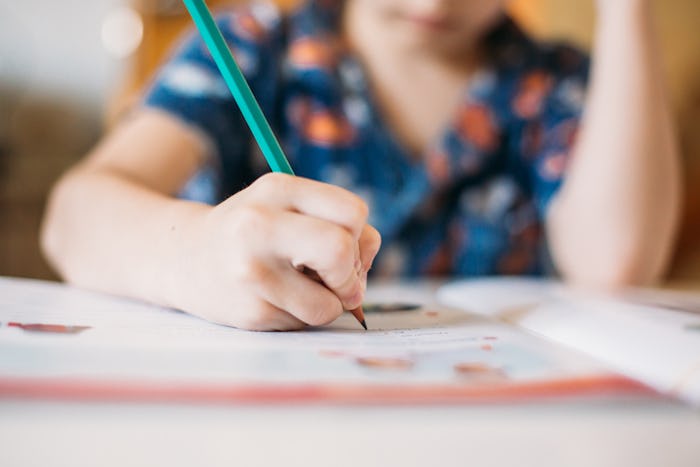News

The AAP Just Adjusted Its School Reopening Advice & It Stresses Science, Not Politics
The American Academy of Pediatrics (AAP) has adjusted its guidance for reopening schools, stressing that public health agencies and science, not politicians, should be driving decisions on returning students to classrooms. AAP's updated guidance comes just days after the Trump administration cited the professional association's guidance in threats to withhold funding from schools that don't return to full-time in-person learning in the fall.
"Returning to school is important for the healthy development and well-being of children, but we must pursue re-opening in a way that is safe for all students, teachers and staff," the AAP said in updated guidance released Friday. "Science should drive decision-making on safely reopening schools. Public health agencies must make recommendations based on evidence, not politics. We should leave it to health experts to tell us when the time is best to open up school buildings, and listen to educators and administrators to shape how we do it."
In June, the AAP "strongly advocated" for considerations about reopening schools to begin with the goal of "having students physically present in school." The organization noted that along with supporting children's academic learning, schools are also vital for aiding social, emotional, mental, and physical development and providing reliable nutrition and physical activity.
It was this guidance that President Donald Trump and Education Secretary Betsy DeVos have repeatedly cited in their push to force schools across the country to reopen as early as next month despite the fact that many states are currently seeing a surge of new coronavirus cases. Last week, Trump went so far as to threaten to withhold federal funding from schools that did not reopen.
And while research has shown that children are less likely to experience severe illness as a result of coronavirus, they're far from completely immune to the virus. In Florida, for example, state officials have ordered all K-12 schools to fully reopen in August despite data from the state's Department of Health showing more than 11,000 children under the age of 18 have tested positive for coronavirus since March. The state is currently seeing a surge of coronavirus cases, causing its total number of confirmed cases to top 282,430, according to The Miami Herald.
On Friday, however, the AAP began to distance itself from the Trump administration's push to see all schools reopened. In a joint statement with the American Federation of Teachers (AFT), the National Education Association (NEA) and the School Superintendents Association (AASA), AAP stressed that educators, parents, local school leaders, and public health experts must be placed at the core of discussions and decisions regarding the reopening of schools.
"Schools in areas with high levels of COVID-19 community spread should not be compelled to reopen against the judgment of local experts," the associations said. "A one-size-fits-all approach is not appropriate for return to school decisions."
Indeed, states have already begun approaching the upcoming school year differently. While Florida officials want to see all schools fully opened, CBS News has reported that both the Los Angeles Unified School District and San Diego Unified School District have said no students will return to in-person learning in the fall due to California's recent spike in coronavirus cases. Students will instead begin the school year with online only instruction until there is a vigorous system of testing and contact tracing in place, according to CBS News.
Across the country in New York, long a hot spot for coronavirus cases, Gov. Andrew Cuomo has said the reopening of schools will be decided by the state's regional reopening plan. That plan currently allows for schools to reopen for in-person learning if they are located in regions that have entered phase four of the state's reopening plan and maintained a daily infection rate lower than 5%, CNBC has reported.
On Monday, the AAP further pushed back on the Trump administration's funding threats, calling them "misguided" given the already constrained budgets schools face. In fact, the AAP noted that to reopen safely, schools need more funding, not less, to meet the added expenses they'll likely have to take on.
"We call on Congress and the administration to provide the federal resources needed to ensure that inadequate funding does not stand in the way of safely educating and caring for children in our schools," the statement read. "Withholding funding from schools that do not open in person full-time would be a misguided approach, putting already financially strapped schools in an impossible position that would threaten the health of students and teachers."
If you think you’re showing symptoms of coronavirus, which include fever, shortness of breath, and cough, call your doctor before going to get tested. If you’re anxious about the virus’s spread in your community, visit the CDC for up-to-date information and resources, or seek out mental health support. You can find all of Romper’s parents + coronavirus coverage here.